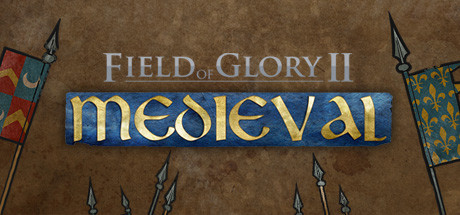Field of Glory II: Medieval – General Maxims
General Maxims
It is the nature of war that what is beneficial to you is detrimental to the enemy and what is of service to him always hurts you. It is therefore a maxim never to do, or to omit doing, anything as a consequence of his actions, but to consult invariably your own interest only. And you depart from this interest whenever you imitate such measures as he pursues for his benefit. For the same reason, it would be wrong for him to follow such steps as you take for your advantage.
+ It is better to have several bodies of reserves than to extend your front too much.
+ A general is not easily overcome who can form a true judgment of his own and the enemy’s forces.
+ Valour is superior to numbers.
+ The nature of the ground is often of more consequence than courage.
+ He who rashly pursues a flying enemy with troops in disorder seems inclined to resign that victory which he had before obtained.
+ A general whose troops are superior both in number and bravery should engage in the oblong square, which is the first formation.
+ He who judges himself inferior should advance his rightwing obliquely against the enemy’s left. This is the second formation.
+ If your left wing is strongest, you must attack the enemy’s right according to the third formation.
+ The general who can depend on the discipline of his men should begin the engagement by attacking both the enemy’s wings at once, the fourth formation.
+ He whose light infantry is good should cover his center by forming them in its front and charge both the enemy’s wings at once. This is the fifth formation.
+He who cannot depend either on the number or courage of his troops, if obliged to engage, should begin the action with his right and endeavor to break the enemy’s left, the rest of his army remaining formed in a line perpendicular to the front and extended to the rear like a javelin. This is the sixth formation.
+ If your forces are few and weak in comparison to the enemy, you must make use of the seventh formation and cover one of your flanks either with an eminence, a city, the sea, a river or some protection of that kind.
+ A general who trusts to his cavalry should choose the proper ground for them and employ them principally in the action.
+ He who depends on his infantry should choose a situation most proper for them and make most use of their service.
+ [Where possible] dispositions for action must be carefully concealed from the enemy, lest they should counteract them and defeat your plans by proper expedients.



